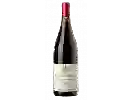
Winery Jean Baptiste ThibaultDoria Pinot Noir Rosé
This wine generally goes well with pork, poultry or veal.
Food and wine pairings with Doria Pinot Noir Rosé
Pairings that work perfectly with Doria Pinot Noir Rosé
Original food and wine pairings with Doria Pinot Noir Rosé
The Doria Pinot Noir Rosé of Winery Jean Baptiste Thibault matches generally quite well with dishes of lamb, rich fish (salmon, tuna etc) or poultry such as recipes of traditional tunisian couscous, light tuna-tomato quiche (without cream) or chinese fondue.
Details and technical informations about Winery Jean Baptiste Thibault's Doria Pinot Noir Rosé.
Discover the grape variety: Pinot noir
Pinot noir is an important red grape variety in Burgundy and Champagne, and its reputation is well known! Great wines such as the Domaine de la Romanée Conti elaborate their wines from this famous grape variety, and make it a great variety. When properly vinified, pinot noit produces red wines of great finesse, with a wide range of aromas depending on its advancement (fruit, undergrowth, leather). it is also the only red grape variety authorized in Alsace. Pinot Noir is not easily cultivated beyond our borders, although it has enjoyed some success in Oregon, the United States, Australia and New Zealand.
Informations about the Winery Jean Baptiste Thibault
The Winery Jean Baptiste Thibault is one of wineries to follow in Vallée de la Loire.. It offers 37 wines for sale in the of Loire Valley to come and discover on site or to buy online.
The wine region of Loire Valley
The Loire Valley is a key wine region in western France. It follows the course of the Loire River on its Long journey through the heart of France, from the inland hills of the Auvergne to the plains of the French Atlantic coast near Nantes (Muscadet country). Important in terms of quantity and quality, the region produces large quantities (about 4 million h/l each year) of everyday wines, as well as some of France's greatest wines. Diversity is another of the region's major assets; the styles of wine produced here range from the light, tangy Muscadet to the Sweet, honeyed Bonnezeaux, the Sparkling whites of Vouvray and the juicy, Tannic reds of Chinon and Saumur.
The word of the wine: Barbarossa
A black wine and table grape variety grown in Corsica, which is used in the ajaccio appellation.














